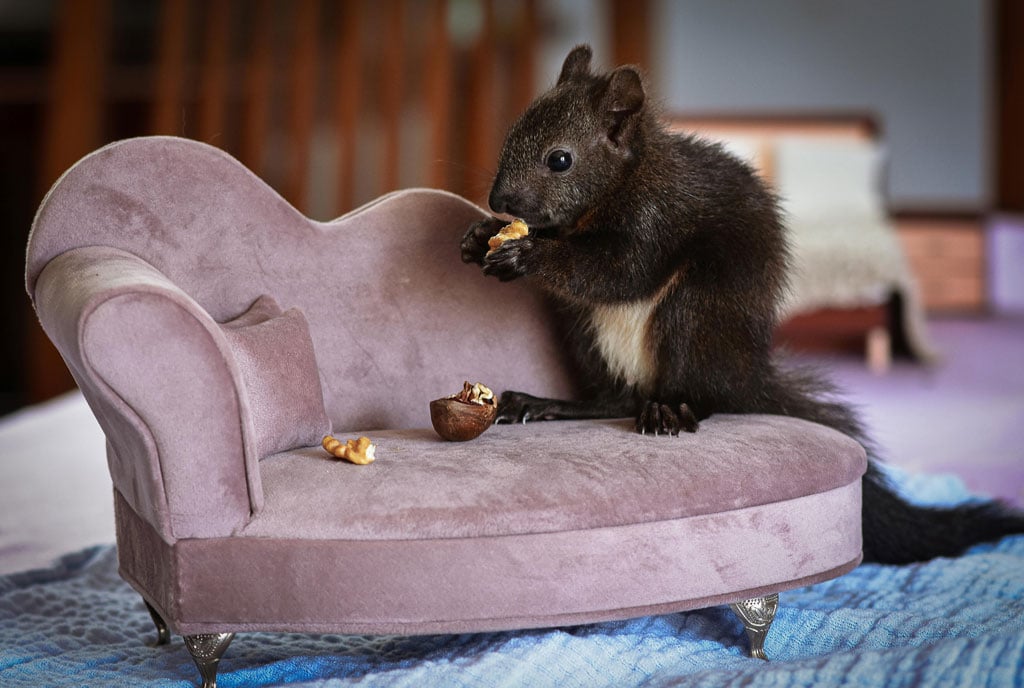Prime
DR Congo: The theatre of Uganda-Rwanda tensions

L-R: A photo montage of Ugandan President Yoweri Museveni, former DR Congo president Mobutu Sese Seko and Rwandan president Paul Kagame. FILE PHOTOS
The Democratic Republic of Congo, where Uganda and Rwanda have advanced their agenda and settled past feuds for two decades, once again appears to be central to the ongoing conflict between the two countries.
Both countries have previously clashed over the control and influence of their larger neighbour. They have also sponsored proxy groups in eastern Congo. The approach to the events in DRC that culminated in the controversial announcement of Felix Tshisekedi as president of the vast country, therefore, provides a glimpse of what is at stake.
Did Uganda outfox Rwanda in influencing who would call the shots after president Joseph Kabila stepped down? On the face of it, this appears to be the case because Mr Tshisekedi held a secret meeting with President Museveni in Entebbe, before he was crowned as DRC leader.
President Kagame, the African Union chairperson at the time, appears to have not been read in on the unfolding script or he hoped the continental body would push for a decision more agreeable to Kigali.
The high-level delegation he was to lead to Kinshasa to interact with all Congolese stakeholders, with a view to reaching consensus on a way out of the post-electoral crisis in the country did not happen. To put it plainly, the DRC government and many of the African Union members, including Uganda plus the international community, did not warm up to the idea.
President Museveni appears to have played his cards well and seems to have gained an upper hand over Rwanda in DRC. Both countries have entrenched economic and security interests in the vast country. A functioning DRC, therefore, is both bad and good news for its two feuding tiny neighbours.
Rwanda and Uganda were instrumental in removing DRC’s (then Zaire) long serving dictator Mobutu Sese Seko, replacing him with Laurent-Désiré Kabila in 1997. At the time, generals from both countries called the shots and historians suggest Kabila (senior) was more or less a puppet of the two neighbours.
His Alliance of Democratic Forces for the Liberation of Congo-Zaire (AFDL or ADFLC) army was mainly comprised of Rwandans, Ugandans and Angolans. Not for so long.
Less than a year after taking power Kabila (senior) wanted the foreign powers, including Uganda and Rwanda, out of the Congo. He would eventually throw out troops commanded by Rwanda’s former defence minister, Gen James Kabarebe.
The eventual assassination of Kabila (senior) in 2001, has been traced to this decision, among others. Rwanda and Uganda have fought at least three wars in DRC.
Security
Rwanda and Uganda have a genuine security interest in DRC, especially the eastern part of the country. Rebel groups that have attacked both countries in the past and continue to pose a threat to them have a home in DRC.
The Democratic Forces for the Liberation of Rwanda (FDLR) is based in DRC and last year confirmed an attack in which they killed at least two soldiers in Rwanda.
In that incident, FDLR said they attacked Rwanda to push back Rwandan troops who had tried to forcibly repatriate Rwandan refugees in Congo.
Rwandan authorities, in response, according to a Reuters report, tagged the Rwanda National Congress (RNC) to the attack. In the ongoing feud, Rwanda has accused Uganda of supporting rebel groups opposed to the Kigali regime, allegations the Kampala regime rejects.
“RNC and FDLR work from Uganda with support of some authorities there. This is another serious case and we have raised it with them,” Rwandan foreign minister Richard Sezibera told a news conference in Kigali on March 5.
Should the conflict escalate, eastern DRC is a likely ground to settle that score either through proxy fights or direct confrontation as has happened in the past.
In November last year, the Uganda People’s Defence Forces (UPDF) deployed along the Uganda-DR Congo border to guard against escalation of incursions following continued attacks by rebels of the Allied Democratic Forces (ADF). ADF is also based in DRC.
Security in DRC is, therefore, good news to both Rwanda and Uganda in as far as dealing with the threats to the regimes in Kampala and Kigali is concerned.
On another front, this security and a functioning DRC is bad news for the two countries and could partly explain the latest hostilities. It is an open secret that officials from Uganda and Rwanda have engaged in looting minerals from the resource-rich DR Congo.
A 2001 United Nations panel of experts report accused Rwanda and Uganda of looting the natural riches of DRC including coltan, diamond, copper, cobalt and gold and timber from Congo’s forests.
While both countries deny the allegations, the UN has denounced Rwanda and Uganda, among others, for selling DRC minerals and in turn sponsoring armed groups in order to keep the trade alive. UN investigators have also found both countries liable for genocidal acts against the Congolese people.
In 1999, the International Court of Justice (ICJ) slapped a $10 billion (Shs37 trillion) penalty on Uganda for plundering minerals from eastern DRC and committing crimes against humanity. Uganda is yet to pay this debt.
Bank of Uganda, in February, announced that Uganda’s gold exports had jumped by 23 per cent in 2018, compared to 2017 to become the country’s top foreign exchange earner ahead of coffee. Uganda, according to BoU, exported gold worth $514 million in 2018, compared to $418 million earned in 2017.
In the past, activists have accused the Entebbe-based African Gold Refinery (AGR) of buying gold smuggled from DRC. The Sentry, a team of policy analysts, regional experts, and financial forensic investigators that probe corruption, illicit financial outflows, and stolen mineral wealth alleged in a recent investigation that AGR refined illegally-smuggled conflict gold from eastern Congo and exported it through a series of companies to the United States and Europe.
AGR denies the allegations classifying them as untrue, wild and biased.
Against a backdrop of accusations of stealing DRC’s minerals, president Kagame offered a free visa and an air ticket to anyone disputing Rwanda’s Coltan (tantalum) production capability to visit the country’s active mining sites.




